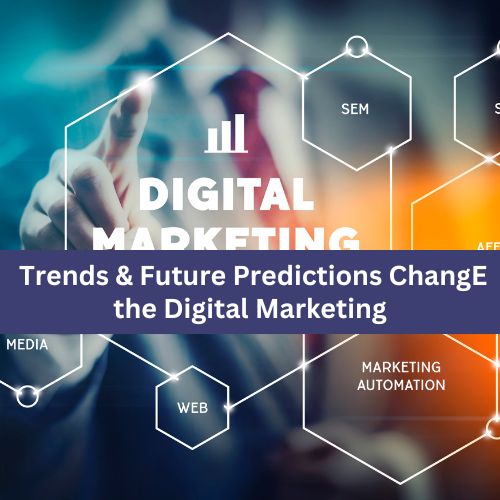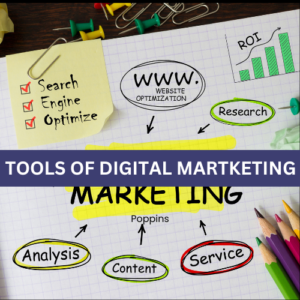The field of Search Engine Optimization (SEO) is dynamic and ever-changing, witnessing the emergence of new trends and predictions each year. In the realm of Digital Marketing, it is crucial to remain updated on the latest SEO trends and future predictions to maintain the relevance and visibility of your website on search engine results pages (SERPs). This blog post aims to delve into some of the significant SEO trends and future predictions that are transforming the Digital Marketing industry. The field of SEO (Search Engine Optimization) is constantly evolving, and several trends and future predictions are shaping the digital marketing industry. Here are some key trends and predictions that are changing the SEO landscape:

- Voice Search Optimization: With the rise of voice assistants and smart speakers, voice search has gained significant popularity. Optimizing content for voice search queries, which tend to be more conversational and longer, is becoming essential. SEO strategies need to focus on understanding and incorporating natural language queries and providing concise, informative answers.
- Mobile-First Indexing: Mobile devices have overtaken desktops as the primary means of accessing the internet. As a result, search engines like Google have shifted to mobile-first indexing, where the mobile version of a website is prioritized for indexing and ranking. Websites need to be optimized for mobile devices, ensuring responsive design, fast load times, and mobile-friendly user experience.
- User Experience (UX): Search engines increasingly prioritize user experience as a ranking factor. Factors like website speed, mobile-friendliness, intuitive navigation, and engaging content are crucial for SEO success. Optimizing UX enhances visitor satisfaction, reduces bounce rates, and improves search engine visibility.
- Featured Snippets and Rich Results: Featured snippets provide concise answers to user queries directly on search engine results pages (SERPs). Optimizing content to appear in featured snippets can significantly increase visibility and organic traffic. Additionally, rich results, such as schema markup, allow search engines to display enhanced information like reviews, ratings, and images, providing more context to users.
- Artificial Intelligence (AI) and Machine Learning: AI and machine learning algorithms are increasingly influencing search engine algorithms. Google’s RankBrain, for instance, helps interpret search queries and provide more relevant results. Understanding and aligning with these algorithms is crucial for SEO success. AI-powered tools also offer valuable insights for keyword research, content optimization, and competitor analysis.
- E-A-T (Expertise, Authoritativeness, Trustworthiness): E-A-T has become a critical factor in determining the credibility and ranking of websites. Search engines aim to provide users with trustworthy and authoritative content. Building expertise, establishing authoritativeness, and gaining trust through high-quality content, backlinks, positive reviews, and brand reputation is vital for SEO.
- Video and Visual Search: Video content is becoming increasingly popular, and search engines are placing more emphasis on video optimization. Creating and optimizing video content, including titles, descriptions, and transcripts, can improve search visibility. Visual search is also gaining traction, enabling users to search using images rather than text. Optimizing images with descriptive filenames, alt tags, and schema markup can enhance visibility in visual search.




